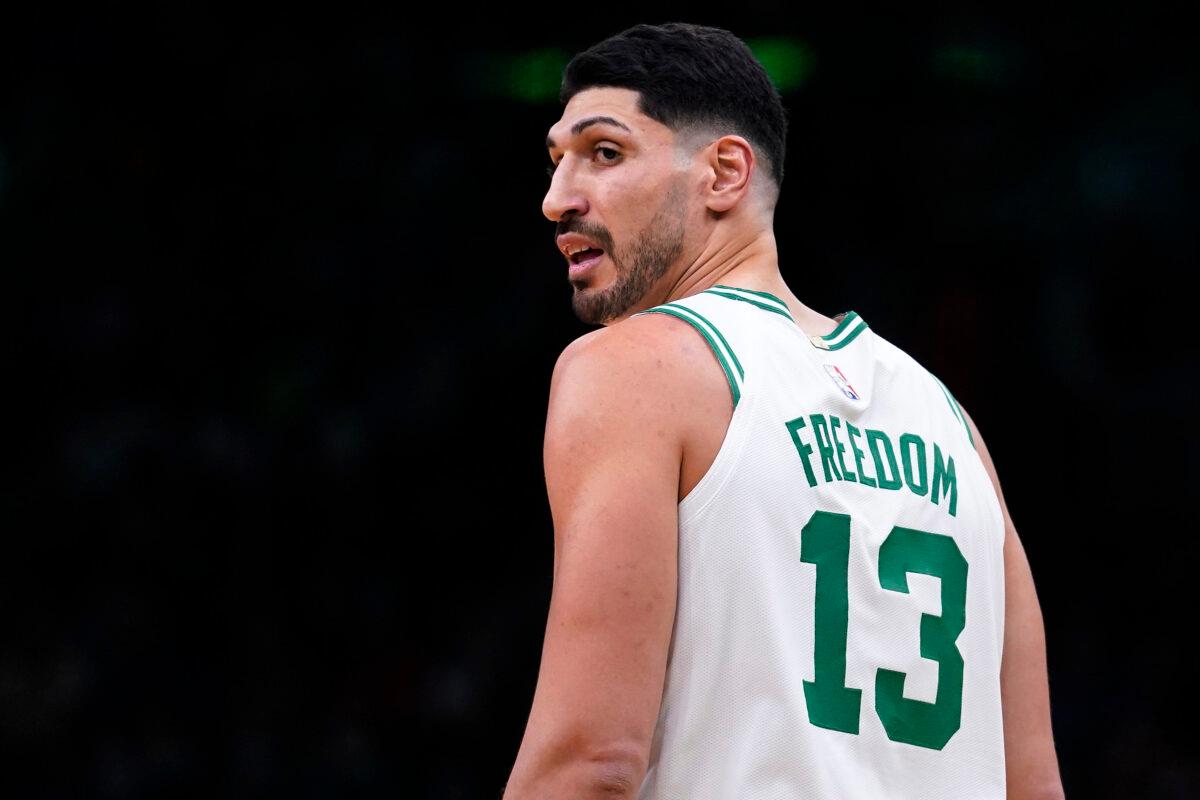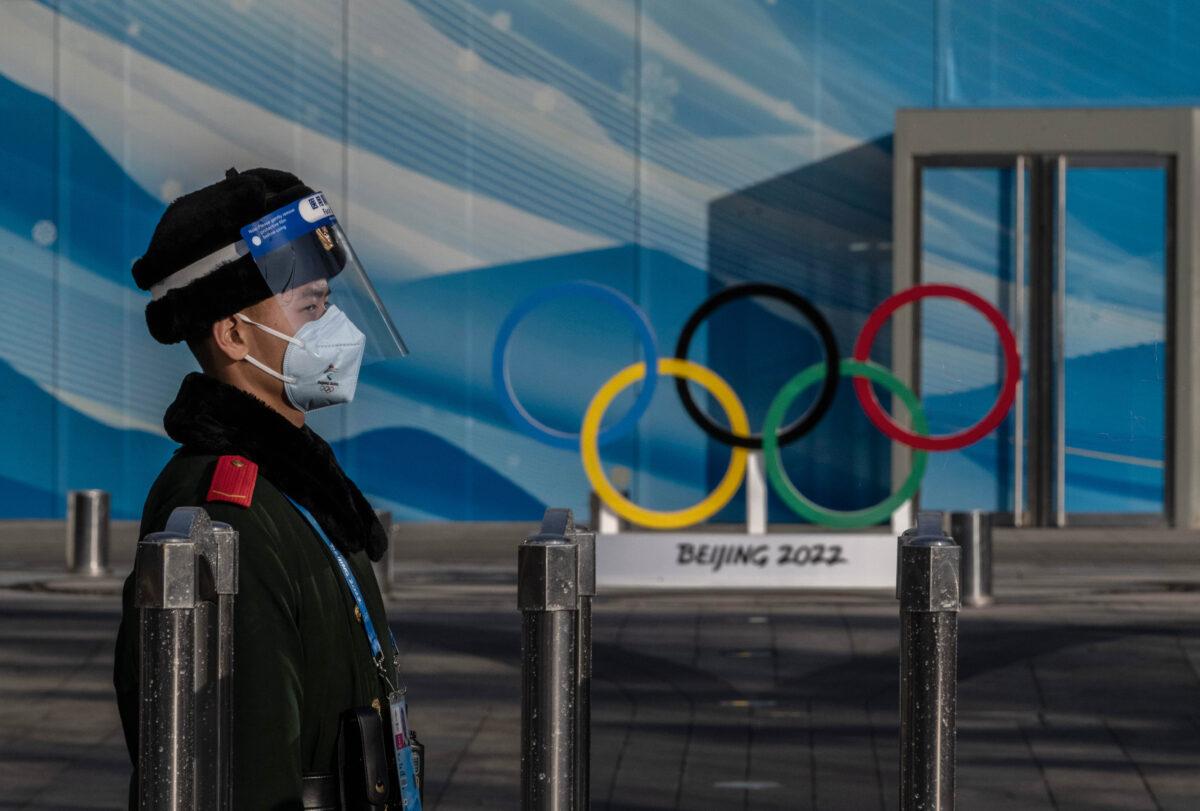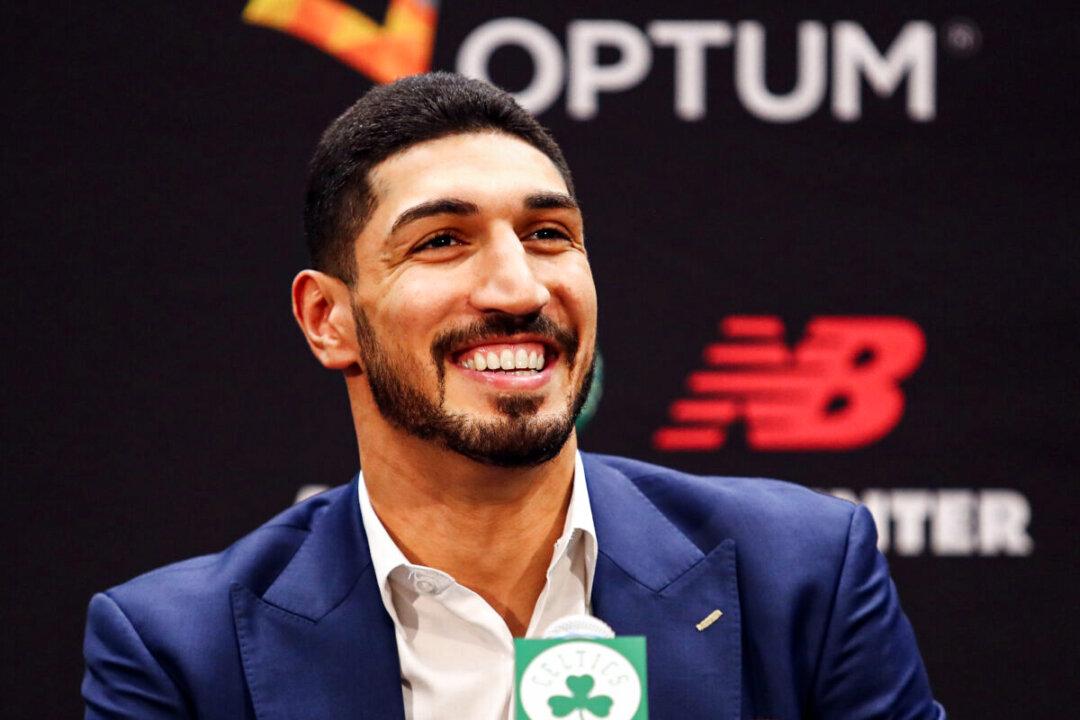American athletes and the sports community at large have shied away from taking a public stance on communist China’s human rights atrocities because of the dollars at stake, according to Boston Celtics center Enes Kanter Freedom.
“Whenever we sit down to have a conversation, they always … acknowledge obviously the genocide and they know what’s going on,” Freedom told a live-streamed event on Jan. 31 hosted by the think tank Heritage Foundation. “But unfortunately they are too scared to say anything just because—again, business and money are a side of it.”
“That is what breaks my heart the most,” the NBA player said, referring to the collective silence of his sporting peers.
“They know what’s going on, they know all the abuses done by CCP [Chinese Communist Party], but just because … they had these big endorsement deals or they have a lot of jersey sales or shoe sales in China, they are telling me they have to remain silent but they are supportive of me and praying for me,” he said.
And it’s “not just athletes”—Freedom said he has observed the same self-censorship by the league, among representatives for the NBA, as well as anyone else who has a platform.
The sporting community’s silence is not atypical. Observers note that fear of economic retaliation by Beijing has prevented a range of other sectors from taking positions on the regime’s human rights record.

One of them “essentially said to me that there was no doubt in his mind that the Chinese Communist Party was capable of such atrocities and that it was indeed happening, but that if we said anything, China would simply send all of its students to Texas” instead of Utah, Gilcrease said during a virtual panel discussion.
More than a dozen NBA players have endorsement deals with China-based sports brands linked to forced labor. Those brands, such as Anta and Li-Ning, have openly embraced the sourcing of cotton from Xinjiang, even as U.S. officials and experts have identified such materials as likely made with Uyghur forced labor.

Asked if he was paying a price, the 29-year-old appears undaunted.
“Someone has to do it,” he said. “I will be the one. I will be the bad guy if you call it [sic] the bad guy.”
Freedom said that he would do everything he can to “educate” his peers. “I cannot stop just because of all that business involved,” he said.
“I just wish more athletes can join me,” he said. “It is a long road, but I always say God is with me.”





